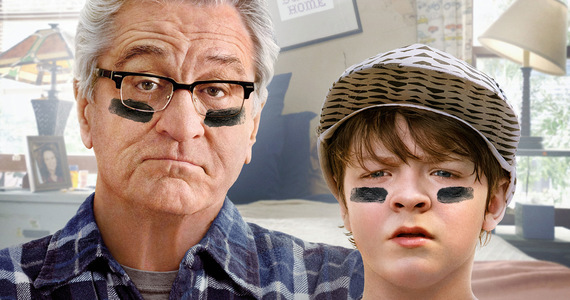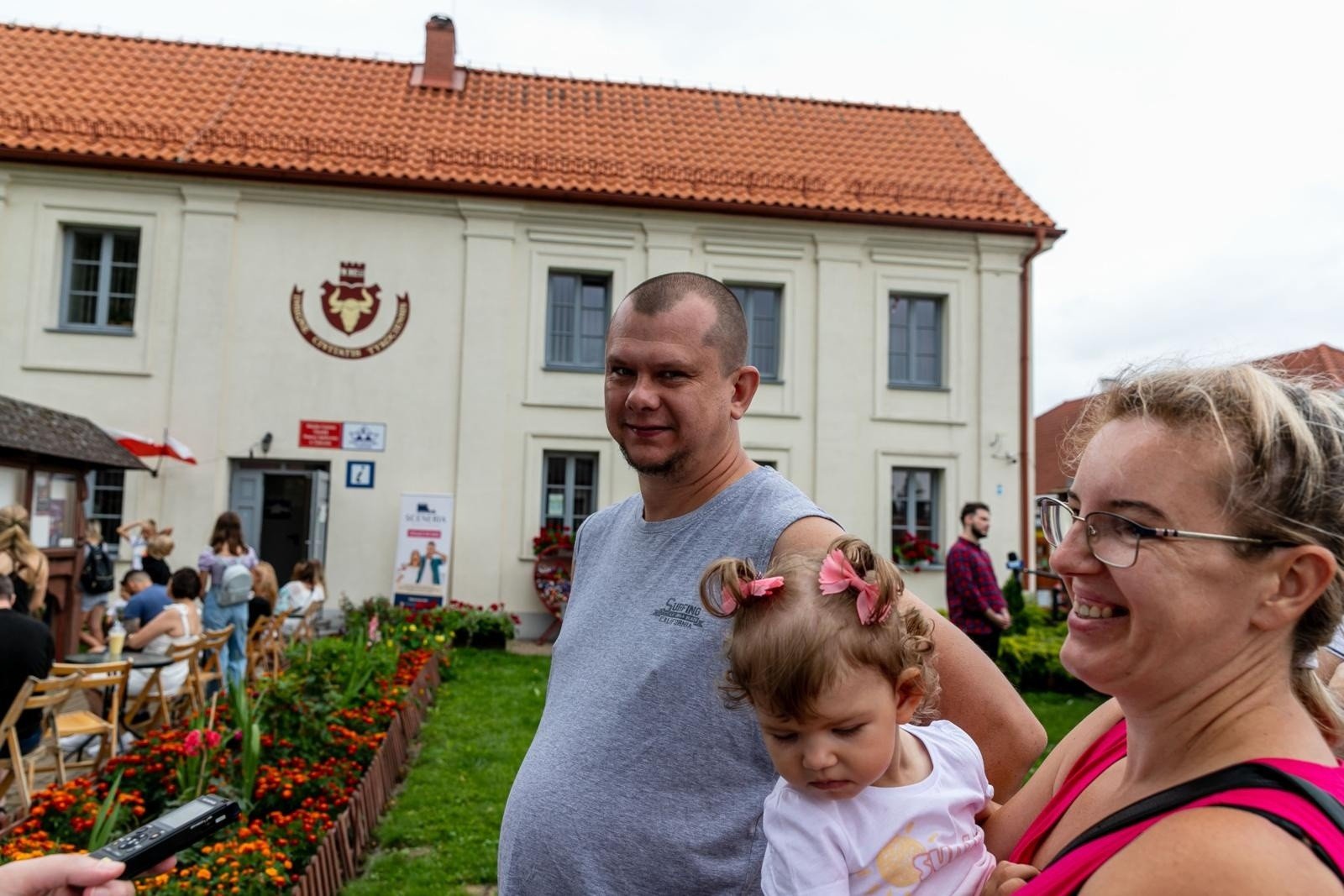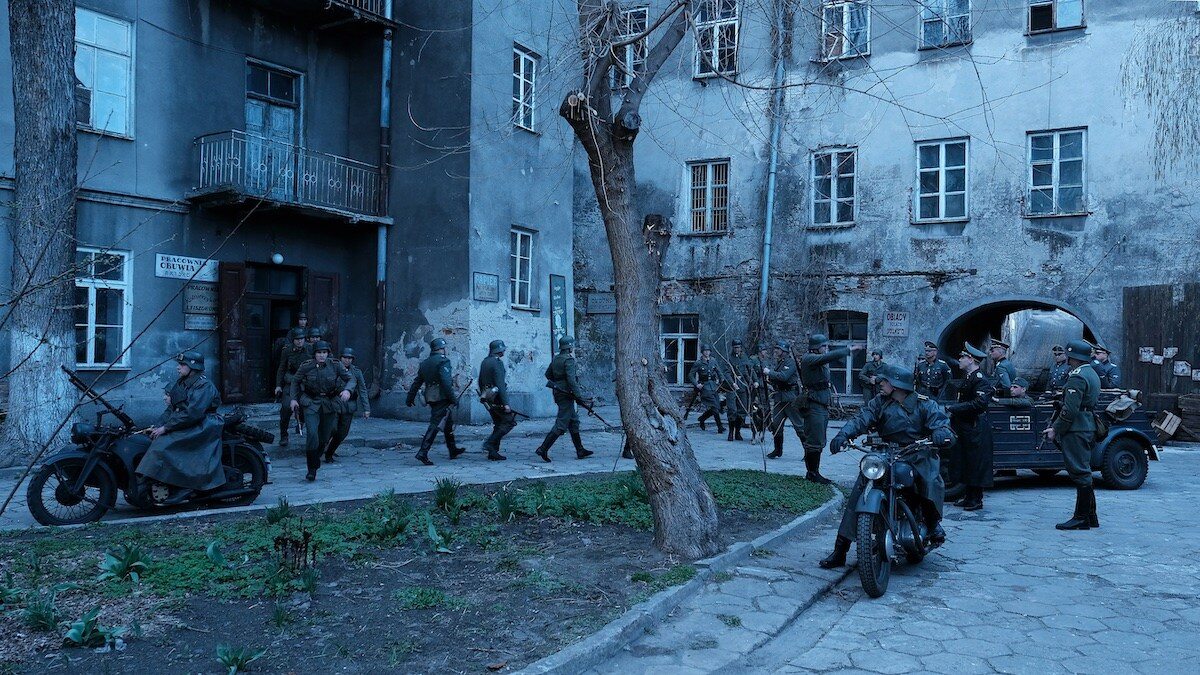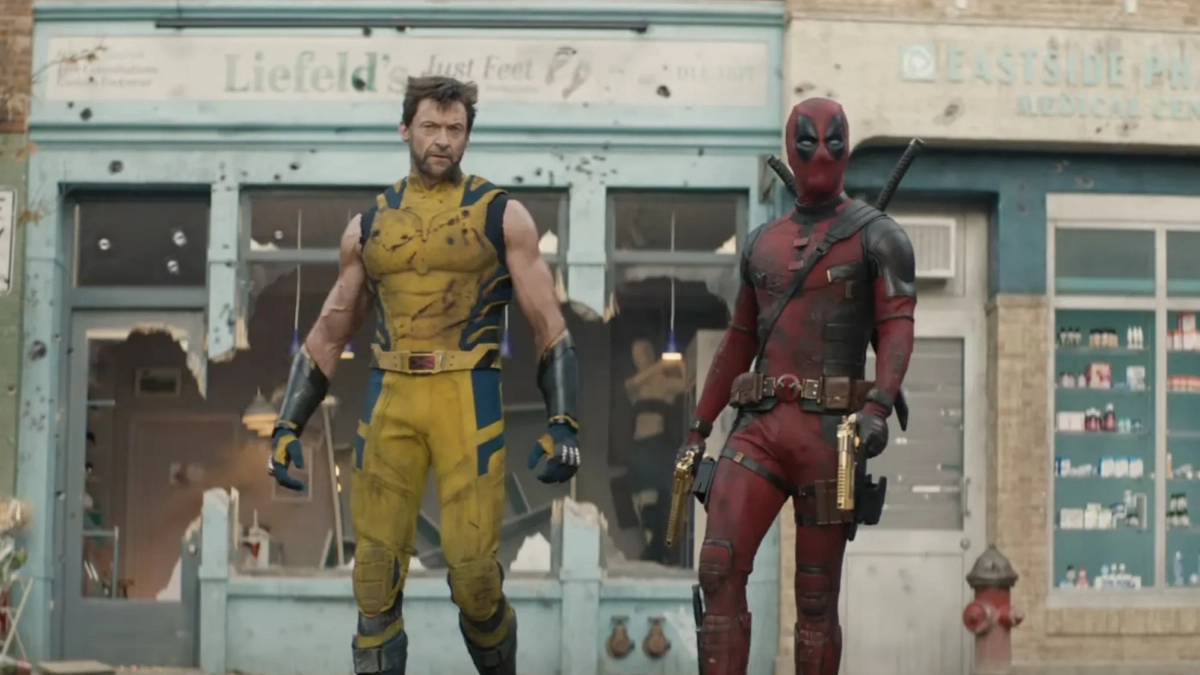The film is supposed to be titled Tadeusz Kościuszko, but he is actually just a guest star in the story of a certain foundling who, while on the run from his family, encounters a general preparing to fight the Muscovites. Intimate cinema, based on characters and dialogues.
Michał A. Zieliński, responsible for the script of today's film, is perhaps the greatest hero of the entire production. Almost all reviewers compare his work to Quentin Tarantino (the poster making a strong reference to the “Hateful Eight” helps with this comparison) and it has to be admitted that there is something there. It's been a long time since I've seen a film with Polish costume, in which the dialogues were so natural and humane, and not arrogant and overly flowery, as if taken from some school reading. It's easy to get carried away, deaf and blind to all the shortcomings of a given scene – and there are a lot of them – and just absorb the movie. The problem is that the movie goes on and on, and you wonder what's going on, Mr. Director, and then a panel with information about the Kosciuszko Uprising and… the end appears on the screen. I had the impression that I was watching one episode from the middle of the season of some series, and not the entire plot. it's a pity.
The second important factor thanks to which “Polish Tarantino” makes an impression is director Paul Maloney. The way he builds scenes, the way he chooses shots to show the small gestures and subtle glances of the characters, means that, combined with the difficult situation in which the characters find themselves almost nonstop for two hours, it immediately builds strong tension and feels very tense. Able to overcome it later maintain it for a long time. I really liked the idea used when filming the fight scene in the inn. The noise, commotion and screams suddenly fade into the background as the main character takes a hard hit to the head and falls to the ground. The camera follows him, leaving the fighting behind. After a moment, his opponent also falls to the ground and so, despite the chaos around him, in a very natural way, Maślona presents us with a private and intimate scene, even though it still takes place in the same place. A neat move that clearly shows that there was an idea for this film. Okay, but what is the truth about this matter?!
Kos (2024) – review and opinion about the film [TVP]. Inconclusive and directionless plot
Ignac Sikora (Bartosz Bielenja), a bastard of a nobleman, receives a promise from his dying father that he will be granted legitimacy. When his wife's half-brother (Piotr Pasek) doesn't want to hear about it, the boy has to run away. On the way, he accidentally meets Tadeusz Kościuszko (Jacek Braciak), who is currently hiding from the Russians who want to stop his rebellious ambitions in the bud. Unfortunately, on the same day, Captain Ewan Donen (Robert Wieckiewicz) arrived at the house where the General was staying. But he doesn't seem to recognize him… It's going to be a very long and dangerous night.
The biggest problem with “Machete” is its broader plot, or rather lack thereof. On the one hand, the entire story takes place against the backdrop of Sikora's struggle for his future – he himself cannot read, and others tell him that his father's will does not list him as heir to the family name. When he feels that they want to deceive him, he grabs the document and runs away. The thing is that after a moment this topic becomes completely irrelevant, because we met Mr. Tadeusz and his American friend Domingo (Jason Mitchell), we learned that the Russians under the command of the cunning and malicious Donin are looking for him, and after a moment, all those interested are under one roof in Colonel Maria's house. Agnieszka Grochowska. The theme of the will returns for a moment at the end, but in fact the entire weight of the story is redirected to the confrontation between the general and the invaders. The thing is, we know Kościuszko has to survive, so we're basically just watching how that happens. And then the movie ends. So what was it actually about? All in all, it's just one day in the life of Kościuszko. There is no clear narrative focus, no goal, and nothing the story leads to. So, while I had a lot of fun along the way, the story ultimately let me down. It is as if Zieliński wanted to make a play in one setting, like the aforementioned “The Hateful Eight,” but forgot to give it a purpose, a moment of catharsis that would tear the hood off the viewer and tear off the hat.
Kos (2024) – review and opinion about the film [TVP]. An insane amount of genius and incompetence bordering on amateurism
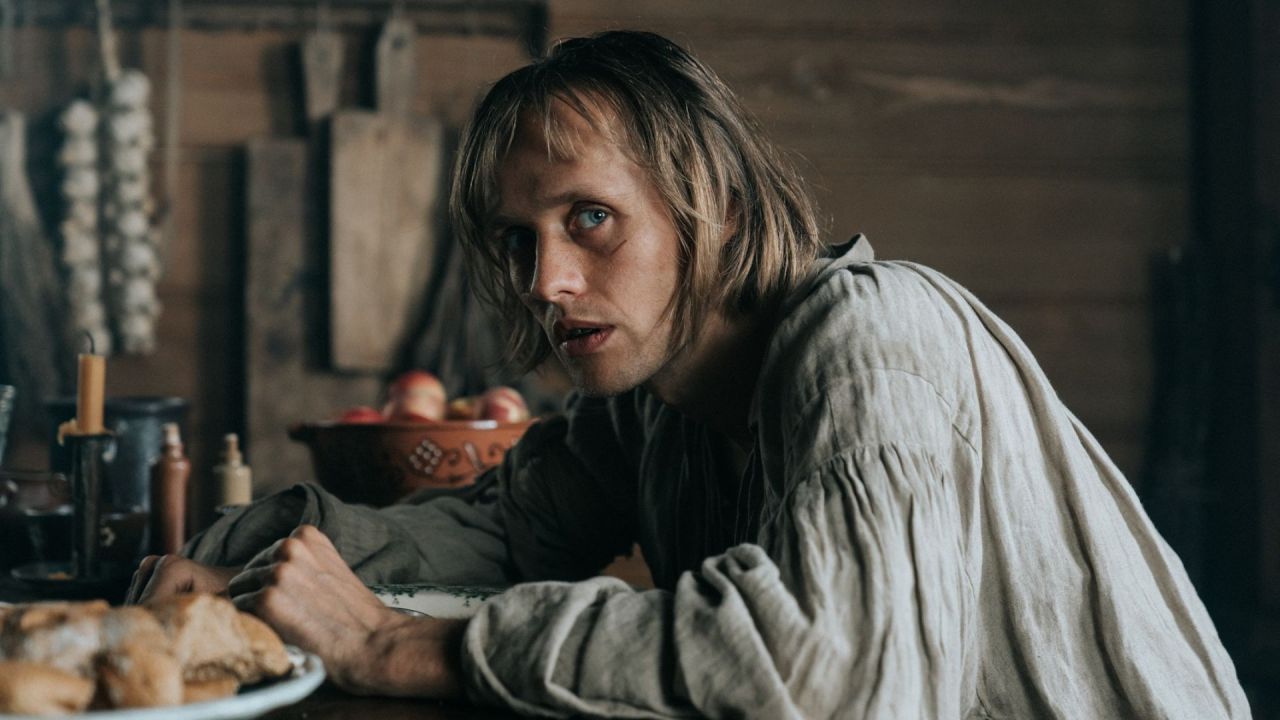
There are some funny acting performances here. In particular, Więckiewicz and Pacek give theatrical performances to the max. The first Donin is almost the devil incarnate – a clever, cunning and outspoken provocateur. Więckiewicz delivers each subsequent line with such enthusiasm, charisma, and energy, as if he were giving a speech or something. In addition, the makeup artists added a huge mustache and bushy eyebrows, making him look a bit like Dustin Hoffman in Spielberg's “Hook.” Ultimately, he is, so to speak, the Hans Landa of Eastern Europe – another inspiration for Quentin. Pacek also resembles a villain from superhero comics, but in a different style. It gives the impression of being more brutal, unpredictable, like a locked grenade. I would say it has a little bit of Batman's Joker in it. Compared to these two, Kosciuszko's Brasiak seems somehow… very ordinary, subdued. Bartosz Bielenja's appearance alone leaves the impression that one begins to feel sorry for him, but contrary to appearances, his Ignac is not merely illiterate, promiscuous, and clumsy. Belenya gives him a paw. Sometimes he is just a simple peasant who cannot even come up with a simple lie on the fly, but when necessary, his quick reaction can save the whole situation, and his attempts to communicate with Domingo, who does not speak Polish, are just that: as funny as they are It is credible and rational, as if the director had actually put two people who did not have a common language facing each other and asked them to agree. This speaks well about the quality of the script and dialogues.
In the scenes where Donen, Kosciuszko, and the rest were sitting at the table, I was a little disturbed by how nervous the whole group was, as they were stuttering and looking nervously to the sides. I understand that the situation is a crisis and that at first you might feel a little nervous, but after a few hours at the table together, everyone was still expressing their tension in a very theatrical way, and reacting almost panicked to literally everything. The believability of the scene disappeared and all the tension went with it. I think that over time, if this conversation becomes more natural, even friendly, further events will only benefit from it. And how could the same person build tension so effectively with his choice of frames and at the same time so tragically depict a huge battle scene that should have been the climax of the entire film? Not only are all the fights and duels using melee weapons fired hand-to-hand, and you're probably a meter away from the action – meaning you can't see anything – but there's also a moment near the end when the bad guys are standing by. Windows and throwing Molotov cocktails into them, or something like that, and “our people” are suffocating and seem on the verge of death. So why doesn't this Russian, standing by the window and seeing what's happening inside, fire at least one shot with a loaded pistol? And since there were so few of them, if they had used their minds instead of following the script, we would have had a completely different story. There are a lot of these little details in this sequence. Combined, they effectively torpedo the final impression.
“Kos” is world-class cinema in many respects (today it means less and less, but you know what I mean), and it's dragged down a bit by certain directorial decisions and a mediocre plot. The film also includes names like Matilde Gigno and Dobromir Demicki, but it's hard to even invoke the influences of their work in the characters. They are merely a device to move the plot forward, and in some cases literal decoration, because Matilda ultimately has almost no impact on the broader plot. But hey, I love it, and I'm glad it stopped here. But I guess that's not what cinematography is about. usually. Adam Sandler might argue. However, I dare say that if you go to the screening knowing that it's not Tarantino, but rather his cheaper fake Polish film, you'll be able to spend an enjoyable two hours with Kos. There are many elements that could definitely be improved, but I still wish more people would dare to make cinema this way. Maloney's film shows that we have the power to find ourselves in it.
note Please keep in mind that yesterday's rating of 6 has nothing to do with today's rating. “Studio 666” was very good in its category. Our “KOS” is a completely different level, but also a completely different kind of cinema. Context matters!

“Amateur social media maven. Pop cultureaholic. Troublemaker. Internet evangelist. Typical bacon ninja. Communicator. Zombie aficionado.”

![Kos (2024) – review and opinion about the film [TVP]. A difficult day in the life of Tadeusz Kosciuszko Kos (2024) – review and opinion about the film [TVP]. A difficult day in the life of Tadeusz Kosciuszko](https://pliki.ppe.pl/storage/8e684ba6000eb62cb1c5/8e684ba6000eb62cb1c5.jpg)
